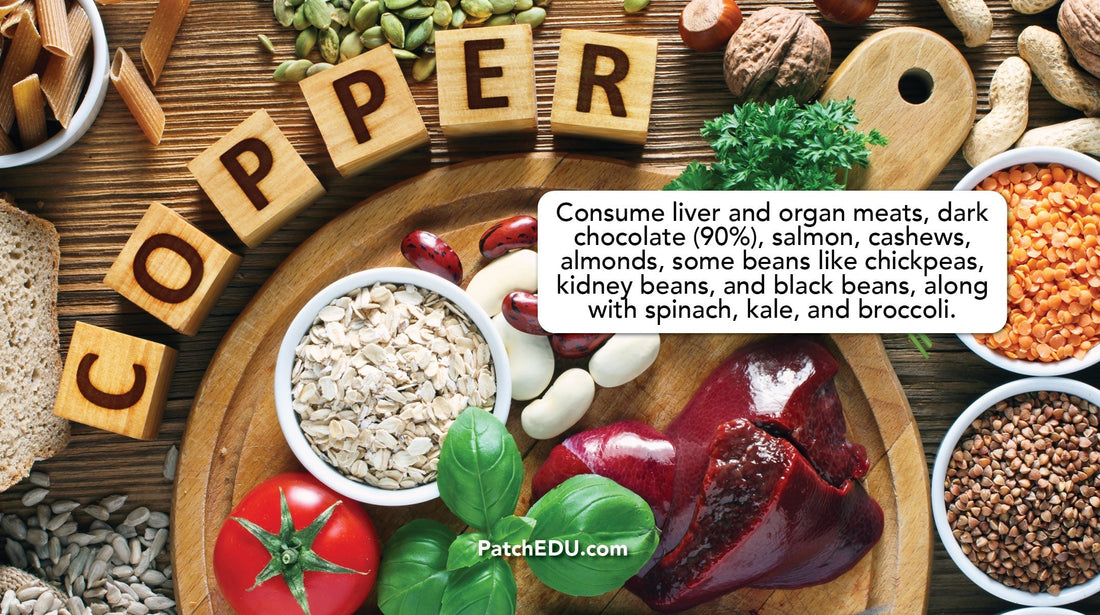By Jen O'Sullivan
Copper is an essential mineral that is needed for your body to produce red blood cells, process cholesterol, maintain strong blood vessels, carry oxygen to your brain, support bone formation, maintain a healthy immune system, fight oxidative stress, regulate your stress response, and also grow a baby in the womb. Average humans only need around 800-900 mcg per day and women who are pregnant or breastfeeding around 1,000-1,300 mcg per day. The tolerable upper limit of copper is 10,000 mcg per day, but it is recommended that you stick to the lower amounts needed.
Some people today may be copper deficient and not even know it. During the pandemic of 2020-2022, it was recommended by some doctors, practitioners, and social media viral posts to take zinc to increase your immune system defenses. People sometimes go overboard on supplements and it is no surprise that some people started taking zinc everyday and in double or triple normal doses. Doing so reduced the amount of copper their body absorbed, hence causing a copper deficiency.
There is a delicate balance between copper and zinc in your body. They compete with each other in the gut for absorption. To remedy this, simply stop taking zinc supplements for the time being, or take a half the normal dose of zinc at night before bed, and a regular dose of copper in the morning.
Most people will get enough zinc in their diet if they eat red meat, nuts, seeds, eggs, whole grains, and dairy. Copper is a little harder to get in your diet, especially if you tend to eat more processed or junk foods. You may obtain copper through your diet by eating liver and organ meats, dark chocolate (90%), salmon, cashews, almond, chickpeas, kidney beans, black beans, spinach, kale, and broccoli.
To find out if you have a copper deficiency, please check with your doctor. If you are taking zinc, simply stop for now. Make sure you are eating foods high in copper and you should be fine. Some additional ways to get copper into your body are to wear a copper bracelet or ring, drink from a copper water bottle, or consume a copper supplement such as plant-based copper or colloidal nano copper.
